Yala National Park Weather
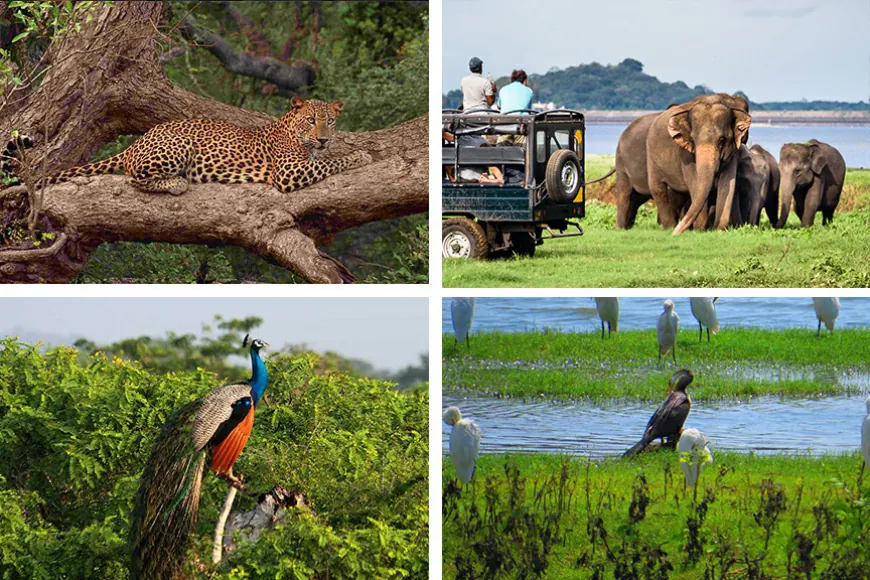
-
Yala National Park Weather
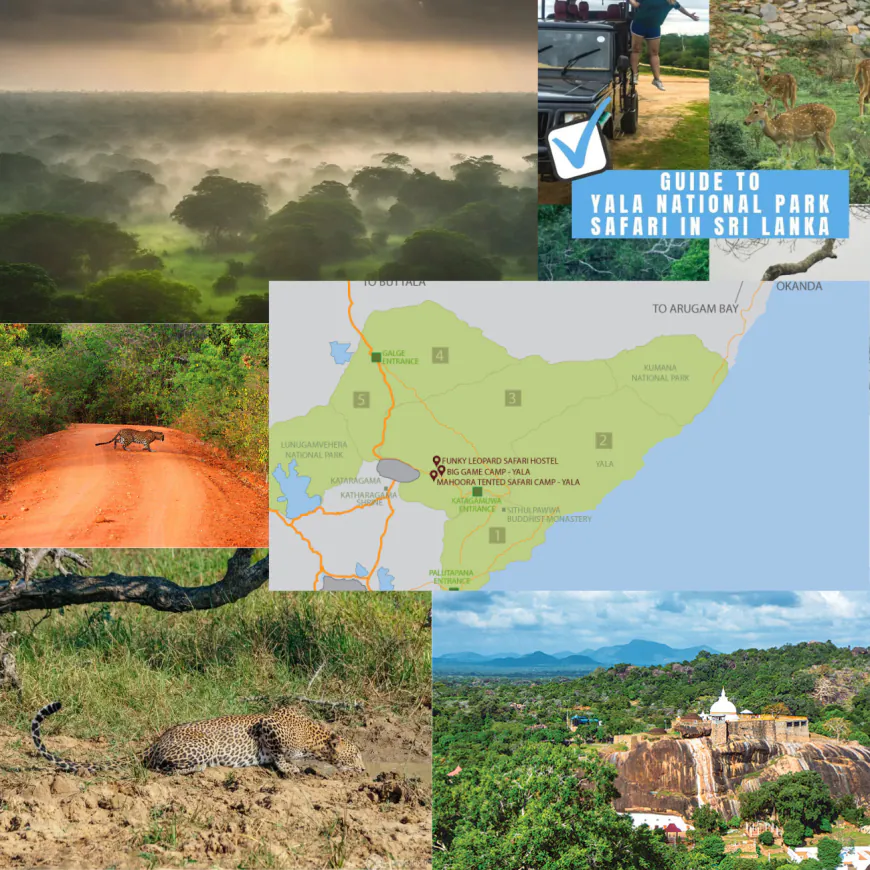
Yala National Park in Sri Lanka is currently experiencing partly cloudy skies, with a temperature of 29°C (84°F) and 64% humidity. As Sri Lanka's second-largest and most visited national park, it spans 979 square kilometres and is renowned for its breathtaking variety of species
-
Sri Lanka's Wildlife Haven
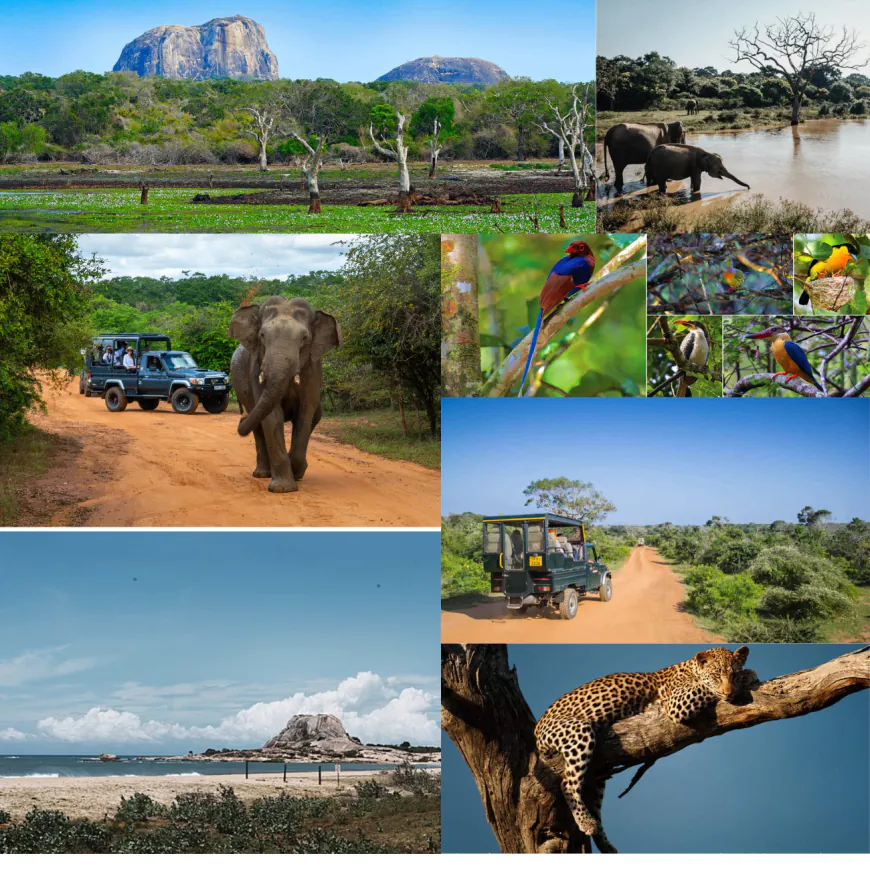
Located in southeastern Sri Lanka, Yala National Park is not only a refuge for wildlife but also a significant conservation area. Originally established as a sanctuary in 1900, it became one of the nation’s first national parks in 1938. While Yala is divided into five blocks, only three are currently accessible to the public, allowing for a more intimate wildlife experience without overwhelming human activity.
Once a hunting ground for British elites, Yala is now a protected haven for endangered species like leopards, elephants, and aquatic birds. It is internationally recognized as one of the world’s best locations to spot leopards due to its unusually high density of these majestic cats. The park’s landscapes, from coastal areas to dense forests, also make it a crucial habitat for 44 mammal species and 215 bird species, earning it the status of one of Sri Lanka's Important Bird Areas (IBAs).
-
Weather and Climate Essentials
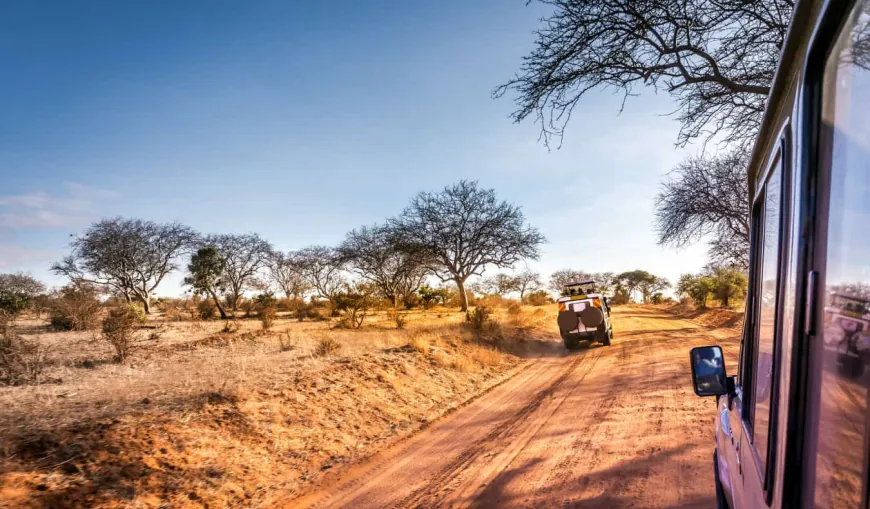
The park has distinct wet and dry seasons, each influencing wildlife behavior, Accurate weather forecasts are essential for ensuring safe and enjoyable trips,
The dry season, from May to September, brings hot, arid conditions, with temperatures reaching up to 37°C. This is a prime time for wildlife sightings as animals congregate near water sources. The inter-monsoonal periods, occurring between March-April and October-November, offer moderate temperatures with occasional rain, providing more flexible weather for exploration. The Northeast monsoon, from December to February, brings heavy rainfall, especially in December and January, which revitalizes the landscape but makes certain areas less accessible. During the Southwest monsoon (May to September), Yala receives relatively little rain, despite much of Sri Lanka experiencing heavy showers.
-
Monsoons and Dry Spells

Sri Lanka’s unique monsoonal patterns significantly affect Yala National Park. Between December and February, the Northeast Monsoon brings heavy rain, replenishing the park's water sources. This period is followed by the drier months of March and April, where intermittent showers occur, and the dry season takes full effect from May to September, making it prime time for wildlife sightings as animals cluster around scarce water resources. Despite being in the country's dry zone, Yala experiences varying levels of rainfall throughout the year, particularly during the monsoon season.
Season
Months
Characteristics
Northeast Monsoon
December to February
Heavy rainfall, peak in November-December
Inter-monsoon
March - April
Unpredictable showers, beneficial rain for the ecosystem
Dry Season
May - September
Hot and arid, temperatures can rise up to 37°C
Southwest Monsoon
May - September
Limited rainfall due to Yala's location in the dry zone
-
Monthly Climate Snapshot
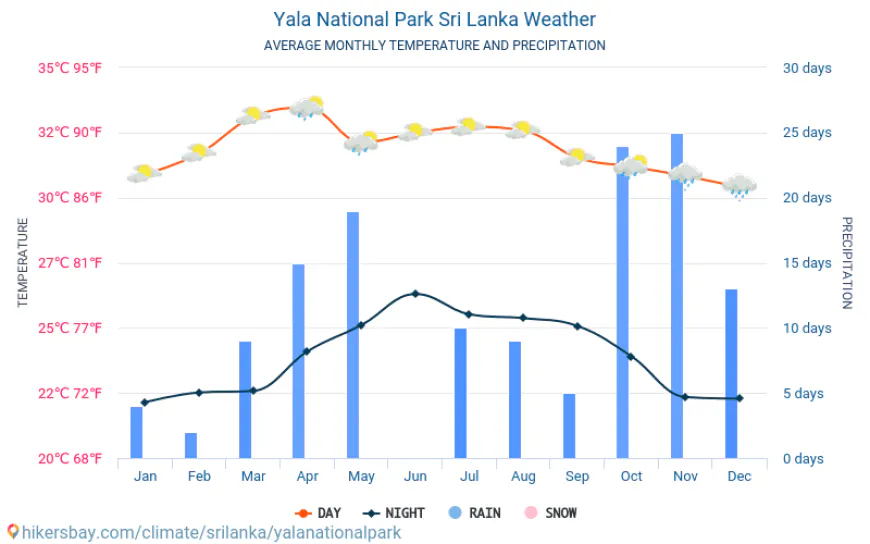
Yala’s weather remains warm and stable year-round, with average highs ranging from 29°C to 31°C. January tends to be cooler with daytime highs around 29°C, while March is the hottest, peaking at 31°C. Rainfall patterns vary more significantly, with the wettest months being November and December, receiving over 100mm of rain. In contrast, June and July are the driest, making them ideal for wildlife viewing as animals tend to gather near water sources. These shifts in weather patterns are crucial for visitors planning their safaris.
Month
Avg. High (°C)
Avg. Low (°C)
Rainfall (mm)
January
29
23
71
February
31
24
69
March
31
24
59
April
30
24
61
May
30
25
66
June
30
25
56
July
30
25
45
August
30
25
63
September
30
25
72
October
29
24
92
November
30
24
125
December
30
24
119
-
Seasonal Wildlife Patterns
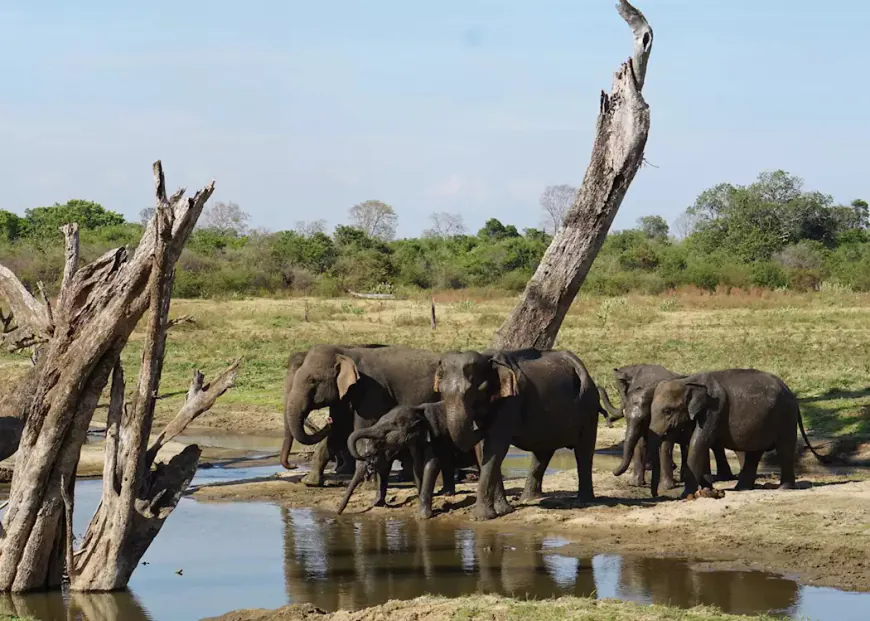
The park’s wildlife is deeply affected by the seasonal shifts in weather. During the dry season from May to September, animals, including elephants and leopards, gather around remaining waterholes, offering visitors more frequent sightings. The wet season from December to February disperses wildlife across the park, making animals harder to spot but offering a lush, green landscape perfect for birdwatching. Migratory birds, drawn by the abundance of water, create an ideal opportunity for bird enthusiasts to enjoy Yala’s incredible biodiversity.
Season
Months
Wildlife Behavior
Viewing Opportunities
Dry Season
May - September
Animals gather around water sources
Increased sightings, especially near waterholes
Northeast Monsoon
December - February
Wildlife disperses, thickened vegetation
Challenging viewing, but lush landscapes and migratory birds
Inter-monsoon
February - April
Balanced conditions, more active wildlife
Good overall viewing, vibrant landscapes
-
Weather-Ready Safari Essentials
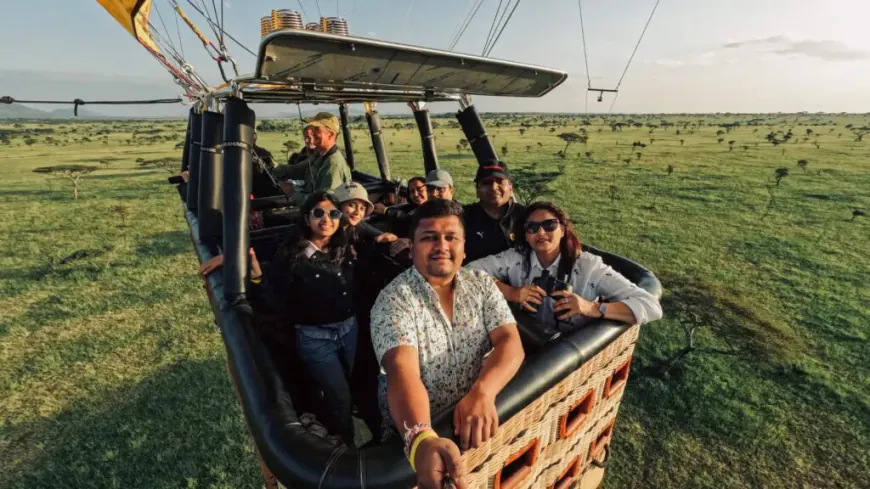
To make the most of a safari in Yala, packing the right gear is essential. Lightweight clothing is ideal for the hot, dry conditions, while long sleeves help protect against insects and the sun. Sunglasses, hats, and sunscreen are critical for staying comfortable in the sun, while sturdy shoes are a must for navigating the park. During the rainy season, waterproof clothing and insect repellent will help you stay dry and safe. Always carry a reusable water bottle to stay hydrated, especially during the hotter months when temperatures can reach up to 37°C.
Recommended Clothing and Gear:
-
Lightweight, breathable clothing is key in Yala’s warm climate. Long-sleeved shirts and pants not only keep you cool but also protect against sun and insect bites.
-
A wide-brimmed hat or cap offers valuable protection from the intense sun, especially during open-air safaris.
-
Sunglasses help shield your eyes from glare and improve visibility in bright sunlight.
-
Sturdy, comfortable shoes are necessary for walking around the park and for getting in and out of safari vehicles.
-
A rain jacket or poncho is useful, particularly during the monsoon season (October to January) when sudden rains are common.
-
Insect repellent is essential, especially during the rainy months when mosquitoes and other insects are more active.
-
A reusable water bottle is critical for staying hydrated in Yala’s hot and dry conditions.
Weather-Related Safety Tips:
-
Hydration: Ensure you drink plenty of water, especially during the dry season (May to September), when temperatures can rise up to 37°C.
-
Sun protection: Seek shade during the hottest part of the day (10 AM to 4 PM) to avoid heat exhaustion and sunburn. Use a high-SPF sunscreen and reapply throughout the day.
-
Rain safety: During the rainy season, be cautious of wet and slippery surfaces when entering or exiting vehicles, especially during sudden downpours.
-
Weather awareness: Always check the weather forecast before setting out on a safari, particularly during the unpredictable inter-monsoon periods.
-
Thunderstorms: Avoid standing under trees during thunderstorms to minimize the risk of lightning strikes.
-
Guidance: Always follow park rules and ranger instructions, particularly when it comes to weather-related precautions.
By adhering to these clothing recommendations and safety tips, visitors can better handle Yala’s diverse weather conditions, ensuring a safe and enjoyable wildlife experience in this beautiful park.
-
-
Weather-Wise Safari Planning
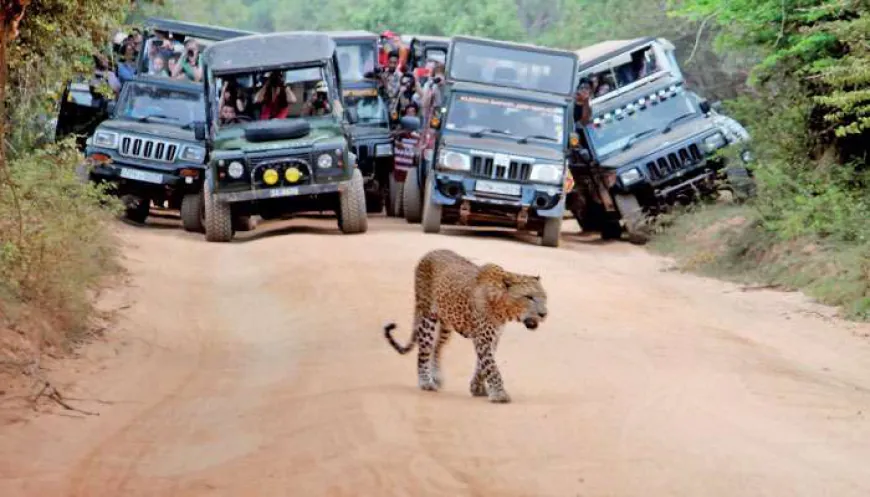
The weather in Yala greatly influences the safari experience. The dry season from February to July offers the best wildlife viewing opportunities, as animals are more likely to be found near waterholes. However, November to February, while wetter, is excellent for birdwatching due to the presence of migratory species. Keeping track of Yala's weather allows visitors to time their visits for the best possible experience, whether they prefer spotting big mammals during the dry season or enjoy the park’s vibrant birdlife during the rainy months.
-
Frequently Asked Questions
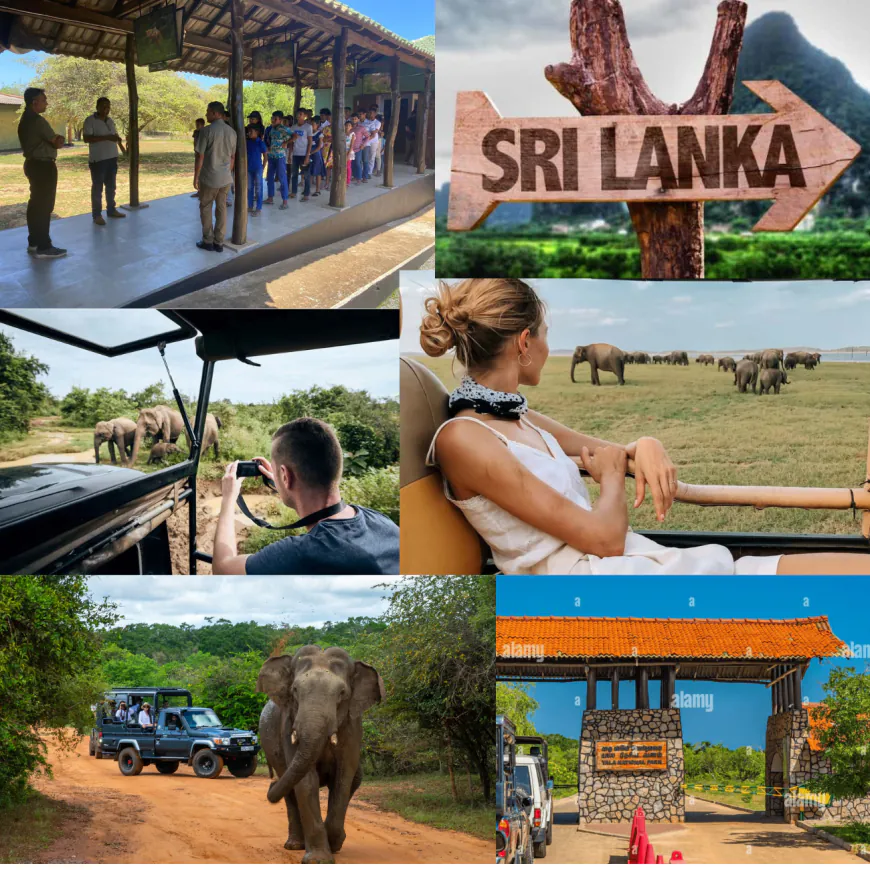
- What is the best time of year to visit Yala National Park?
The ideal time to visit Yala National Park is generally from February to July. This period provides optimal conditions for wildlife viewing, as animals gather around water sources during the dry season.
- What are the average temperatures in Yala National Park?
Average temperatures in Yala National Park range from 28°C to 30°C (82°F to 86°F) throughout the year. March is typically the warmest month, with an average temperature of around 30°C (86°F).
- When is the rainy season in Yala National Park?
The primary rainy season in Yala National Park occurs during the Northeast Monsoon from October to January, with the heaviest rainfall typically seen in November and December.
- Is July a good time to visit Yala National Park?
Yes, July is considered a favorable time to visit Yala National Park. It falls within the dry season, with warm temperatures averaging around 33°C and minimal rainfall, making it excellent for wildlife observation.
- What should I pack for a visit to Yala National Park?
Pack lightweight, breathable clothing, a wide-brimmed hat, sunglasses, sturdy shoes, insect repellent, and a reusable water bottle. If visiting during the rainy season, also include a rain jacket or poncho.
- How does weather affect wildlife viewing in Yala?
Weather plays a significant role in wildlife viewing. During the dry season (May to September), animals tend to gather around water sources, increasing the likelihood of sightings. In contrast, the wet season disperses wildlife but attracts migratory birds, enhancing birdwatching opportunities.
- Are there any weather-related safety concerns in Yala National Park?
Key weather-related safety concerns include the risk of heat exhaustion during the dry season and slippery conditions during the rainy season. It’s important to stay hydrated, apply sun protection, and follow park guidelines and ranger instructions.
- Does Yala National Park close during any season?
Block 1 of Yala National Park usually closes from early September until November 1st due to the dry season. During this time, visitors can explore other sectors of Yala, such as Block 5 and Lunugamvehera National Park.
-
Connect With Yala
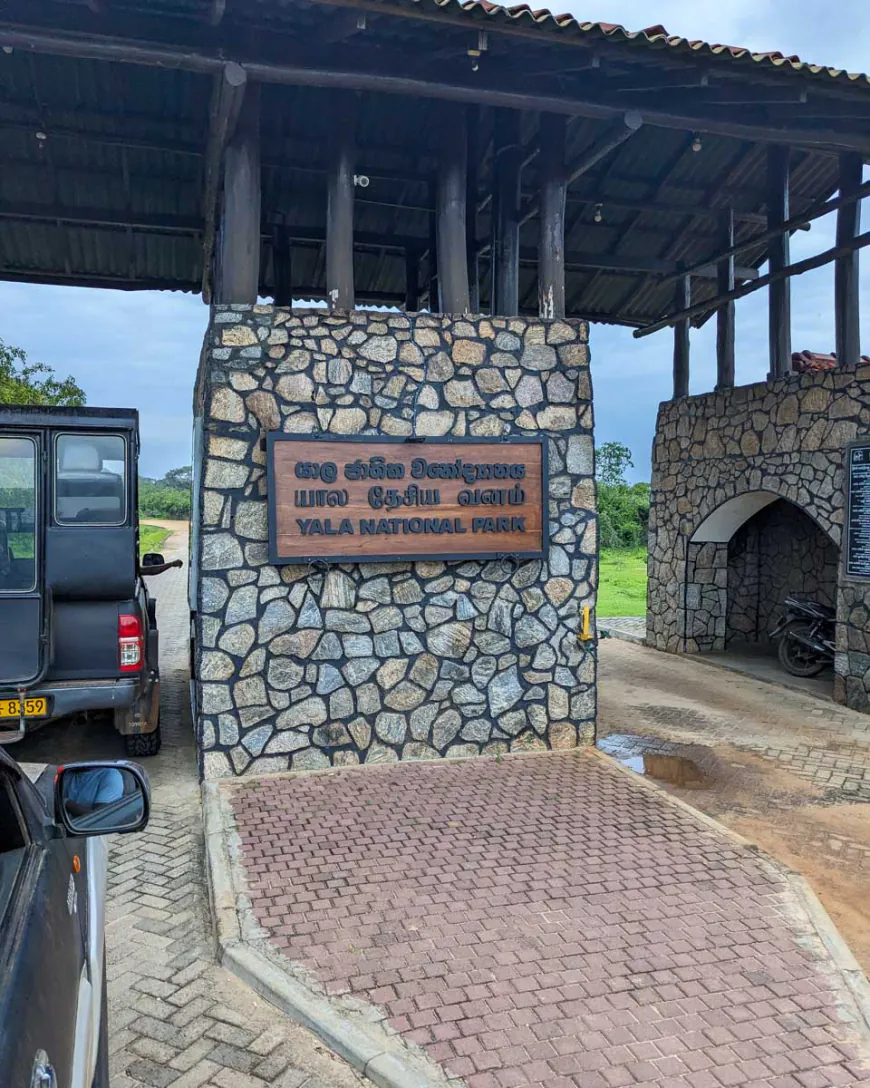
Stay Connected with Yala National Park
For the latest updates, wildlife sightings, and insider tips about Yala National Park, we invite you to stay engaged with us. Here are several ways to connect and gather more information:
Contact Us for More Information
-
Email: [email protected]
-
Phone: +94723456726
Join Our Newsletter
Subscribe to receive regular updates about park conditions, special events, and conservation initiatives. Visit yalalk.com to sign up for our mailing list.
Comment and Share Articles
Engage with our community by leaving comments on our blog posts. Share your favorite articles on social media to help raise awareness about Yala's wildlife and conservation efforts.
Follow Us on Social Media
Stay informed with real-time updates and breathtaking wildlife photography. Find us on Facebook, Instagram, and Twitter for daily glimpses of Yala's natural beauty.
Book Your Safari
Plan your visit to Yala National Park through our official website. Get expert recommendations on the best times to visit based on current weather conditions and wildlife activity.
By staying connected, you’ll not only enhance your own experience at Yala but also support our ongoing conservation efforts. We look forward to hearing from you and sharing the wonders of Yala National Park!
-
What's Your Reaction?









































